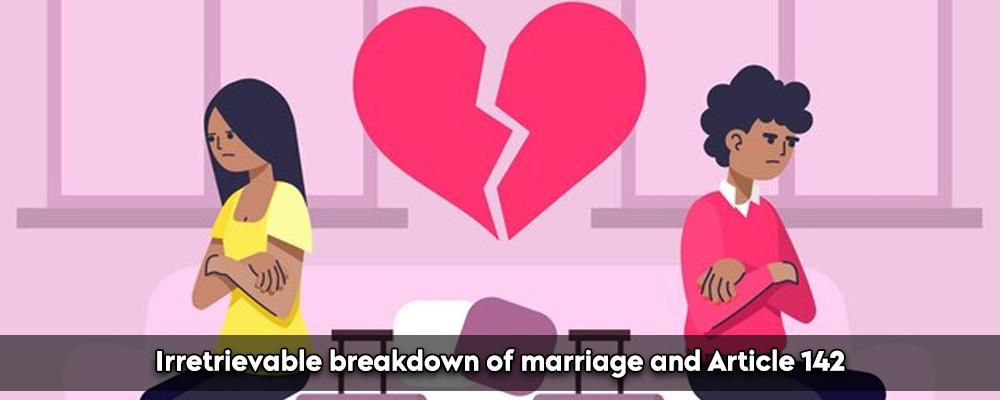The spouse also grew more autonomous and self-reliant as their socioeconomic situation improved as society advanced. Rather than continue to be confined and cohabit while having a failing marriage, they are ready and eager to live separately. The societal stigma of divorce is also quickly vanishing in the modern day due to the continual advancement of knowledge, communication technology, and level of understanding. As a result of this change, divorce laws have become notably more lenient, especially those covered under the Hindu Marriage Act of 1955.
The pair can no longer cohabitation as husband and wife, which is referred to as an irretrievable breakdown of marriage. Both partners must provide evidence to the court, along with one partner, that there is no chance of a reconciliation given how thoroughly the marriage has failed. Even though the spouses still live together under the same roof, the divorce laws in India as they currently stand do not recognize a circumstance in which their marriage is analogous to a separation.
Need A Legal Advice
The internet is not a lawyer and neither are you. Talk to a real lawyer about your legal issue

In other words, there is still no codified legislation that governs a marriage that has ended permanently. Few grounds for divorce are recognized by Section 13 of the Hindu Marriage Act. However, the Supreme Court has expressed particular worry about the issue of making the irretrievable collapse of marriage a reason for divorce due to changes in social mores and the changing nature of marriage in society.
Although there is no express provision for the “irretrievable collapse of marriage,” over time the Supreme Court has used its authority granted by Article 142 of the Constitution to provide the parties with the absolute justice they need in marital proceedings. Furthermore, the Court believed that in extreme situations where the parties are not only engaged in accusing one another but also when the very foundation of their marital relationship has crumbled and cannot be repaired in any way, the Court must provide for the decree of dissolution of marital relations on the grounds of “irretrievable breakdown of marriage.”
Article 142
According to the provisions of Article 142 of the Constitution, the Supreme Court has the exclusive authority to “complete justice” between the parties, which means that in situations where a law or statute may not offer a remedy, the Court may step in to resolve a dispute in a way that is appropriate given the circumstances. We believe that in the current situation, it is reasonable to use this provision to achieve this goal.
Case Law
In the case of DEEPTI Vs. ANIL KUMAR, The Delhi High Court held that the irretrievable breakdown of a marriage could not be the basis for a divorce and noted that the Hindu Marriage Act (HMA) does not recognize this as a foundation for divorce.
Justice Vikas Mahajan and Justice Sanjeev Sachdeva’s division bench referenced the Supreme Court’s Constitution Bench decision in their order. According to the bench, the Supreme Court of India has the authority to grant divorce on the grounds of irretrievable breakdown of a marriage under Article 142 of the Indian Constitution to provide full justice to both parties. The family court does not have the authority to exercise such powers. Family courts must rigorously limit their thoughts to the requirements of the grant of divorce provision by the Act. The Act does not contain a cause for an irretrievably broken marriage.
The findings were made by the court as it overturned a September 18, 2018, family court judgment that had granted the man’s petition for divorce on the grounds of cruelty and desertion. In addition, the woman’s lawsuit for the restoration of her conjugal rights had been rejected by the family court. The woman filed a lawsuit in the High Court contesting this termination. The High Court declared the family court’s judgment awarding divorce on the grounds of cruelty and dissolution of marriage is not sustainable and set it aside, noting that the family court had “erred in traveling beyond the scope of its powers” to give divorce.
Legal help, online tools, and free legal advice are all offered by Lead India. You can talk to a lawyer right away once you have Lila. Ask a legal question for advice.





 Talk to a Lawyer
Talk to a Lawyer